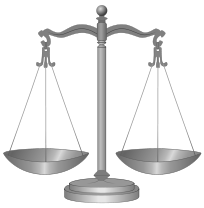What are the responsibilities of producers under E-waste handling rules?
 E-waste is anything that is generated from the after use of an electronic product. The unauthorized dismantling and recycling of E waste is harmful and may cause pollution. There has been a marked upsurge in the consumption of electronic items both in developed and developing countries. This has simultaneously lead to increased generation of E-waste which needs to be disposed and recycled in a manner that does not pose a threat to the environment.
E-waste is anything that is generated from the after use of an electronic product. The unauthorized dismantling and recycling of E waste is harmful and may cause pollution. There has been a marked upsurge in the consumption of electronic items both in developed and developing countries. This has simultaneously lead to increased generation of E-waste which needs to be disposed and recycled in a manner that does not pose a threat to the environment.
The e-waste (Management & Handling) Rules, 2011 came into effect from Tuesday, 01 May 2012. The rules were notified in May 2011. Further, in 2016, the rules were modified followed by an amendment in 2018. The latest rules are reflected below.
The rules provide for reduction in the hazardous waste utilized by 1 May, 2014. Any manufacturer that produces equipment listed in Schedule 1 needs to ensure this requirement.
| Who do they apply to? |
|
| Exceptions | Batteries (covered separately under different rules), Radioactive wastes and Micro and small enterprises. |
| EPR | Producer to either opt for individual collection or collective or set up such collection centres to collect waste from individual and bulk consumers and send it to recyclers or dismantlers. Producer to provide information to consumer about nearest collection centre for such purposes. Producer to also generate awareness and inform consumers about the E waste rules and their responsibilities regarding same. Producer to print a logo to inform consumers not to drop off E waste in bins meant for disposal. |
| Collection Centres | Producers to set up collection centres for collection of such E waste after approval from SPCB’s (State Pollution Control Boards)/ PCC’s (Pollution Control committees). Send it to recyclers or dismantlers and maintain annual records of the same. |
| Bulk Consumers | All public sector undertakings, central or state department, MNC’s, banks, international agencies and private companies registered under factories act and companies act are bulk consumers. They need to ensure that E waste is sent by them to relevant collection centres i.e. producer or to dismantler or to the recycler. Records to be maintained in form 2 which the SPCB/ PCC have the authority to check from time to time. |
| Dismantler | Any person or organization that dismantles the product, renders it non- hazardous and then sends it for use in recycling. All dismantlers need to take approval from SPCB’s and follow ensure no environmental damage is done during dismantling. A dismantler cannot recycle unless he is registered as a recycler with the SPCB. |
| Recycler | Responsibilities similar to that of dismantler |
| Dispute | MoEF/ CPCB to decide |
| Authority of implementation:
Responsibilities of State Government |
SPCB/ PCC’s in various states
Department of Industry in State or any other |
The hallmark of the rules is the introduction of EPR (Extended Producer Responsibility) which means the responsibility of the producer does not merely end with the sale of the product but is extended to the product’s end cycle or final consumption including waste disposal. After the product has been used to its fullest capacity by a consumer, EPR ensures that it is disposed off in a manner that is sustainable and the E waste does not cause any pollution.A survey done by Central Pollution Control Board (CPCB) in 2005, revealed that 1,46,800 MT of e-waste was generated in the country. As per the 2018 amendment, The revised Extended Producer Responsibility targets shall be applicable from 1st October 2017 as per Schedule III.
There are a total of 98 number of registered recyclers and dismantlers having recycling/dismantling capacity of 29,30,57 MTA for environmentally sound management of e-waste under the E-Waste Rules, 2011. With 39 numbers, Karnataka has maximum number of registered recyclers/ dismantlers followed by Tamilnadu (19), Maharashtra (15) and Uttar Pradesh (11). Others are distributed in the States of Andhra Pradesh, Chhattisgarh, Gujarat, Haryana, Madhya Pradesh, Rajasthan, and Uttarakhand.
References and further Reading-
1. http://moef.nic.in/downloads/rules-and-regulations/1035e_eng.pdf
Image credit: Flickr



